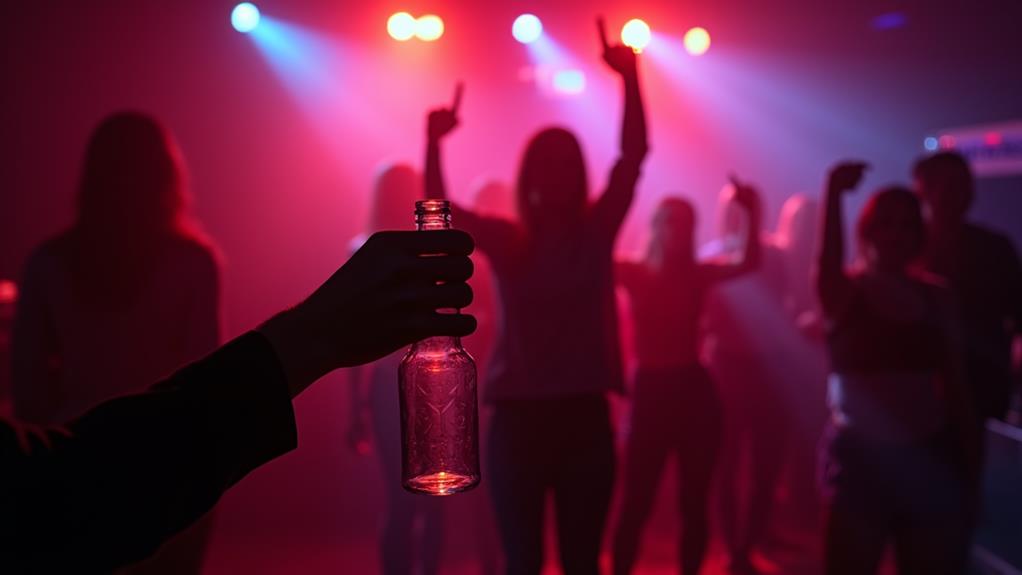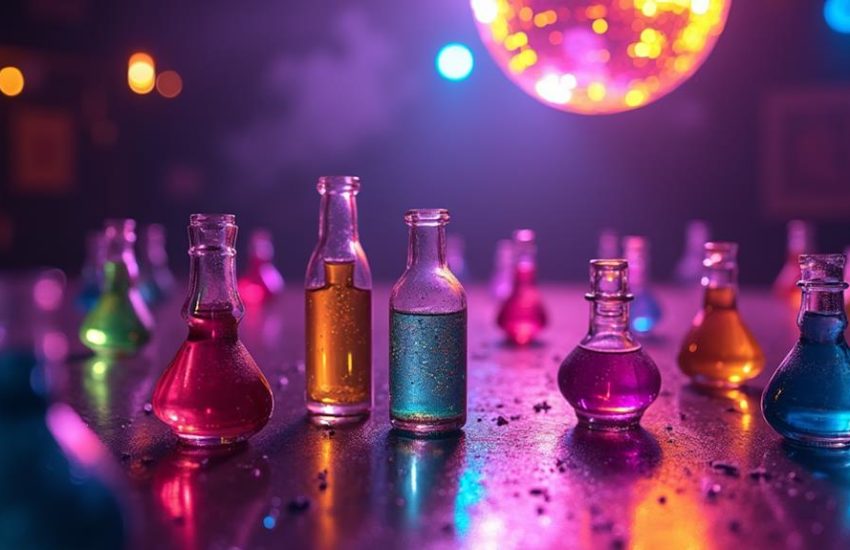The Party Drug That Ends in the ER: The Serious Health Risks of Poppers
Poppers, alkyl nitrites inhaled for euphoric effects, carry serious health risks regardless of their popularity as party drugs. Short-term effects include dizziness, decreased blood pressure, and potential chemical burns. Long-term complications may involve cardiovascular issues, neurological damage, and vision loss. Although legal status varies, poppers remain widely available through online sales and legal loopholes. Users face immediate dangers of severe reactions, including fainting and anaphylaxis. Chronic use can lead to respiratory problems and weakened immune function. Understanding the full spectrum of risks associated with poppers is essential for those considering or currently using this substance.
What Are Poppers?
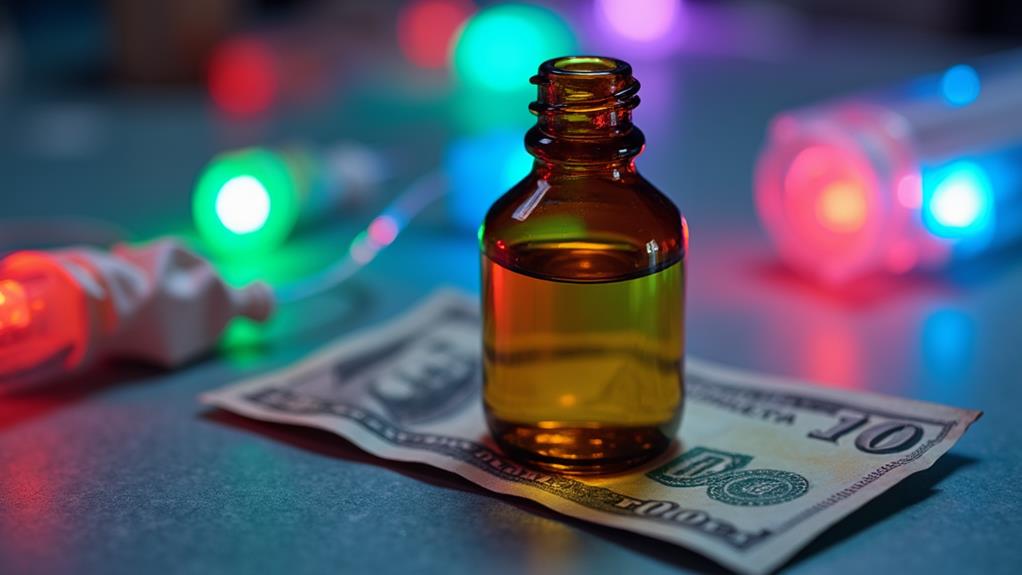
While commonly known by their street name "poppers," alkyl nitrites are a class of chemical substances that produce a brief euphoric effect when inhaled. These volatile liquids, typically sold in small bottles, are primarily composed of amyl nitrite, butyl nitrite, or isobutyl nitrite.
Originally developed for medical purposes, poppers gained popularity for recreational use in the 1960s and 1970s, particularly within the LGBTQ+ community. Users often report health effects, including vision impairment and mental health changes.
When inhaled, poppers cause rapid vasodilation, leading to a rush of blood to the brain and a temporary sense of lightheadedness and relaxation. Users often report increased sexual pleasure and improved sensory experiences.
In spite of their widespread use in social settings, it's essential to understand that poppers are not regulated as recreational drugs in many countries. Their chemical composition and potential health risks make them a subject of concern for medical professionals and researchers alike.
Short-Term Health Effects

Inhaling poppers can lead to immediate and potentially dangerous short-term health effects. The acute side effects of recreational use typically include a sudden rush of blood to the head, dizziness, and a temporary decrease in blood pressure.
Users may experience flushing of the skin, particularly on the face and neck, along with increased heart rate and headaches. Some individuals report feelings of euphoria and improved sexual sensations, which contribute to their popularity in certain social circles.
Nonetheless, these effects can be accompanied by more severe reactions, such as nausea, disorientation, and fainting. In some cases, users may suffer from chemical burns if the liquid comes into direct contact with the skin or mucous membranes.
Allergic reactions are likewise possible, ranging from mild irritation to potentially life-threatening anaphylaxis. The risk of serious respiratory issues increases with frequent or prolonged use.
Long-Term Medical Complications
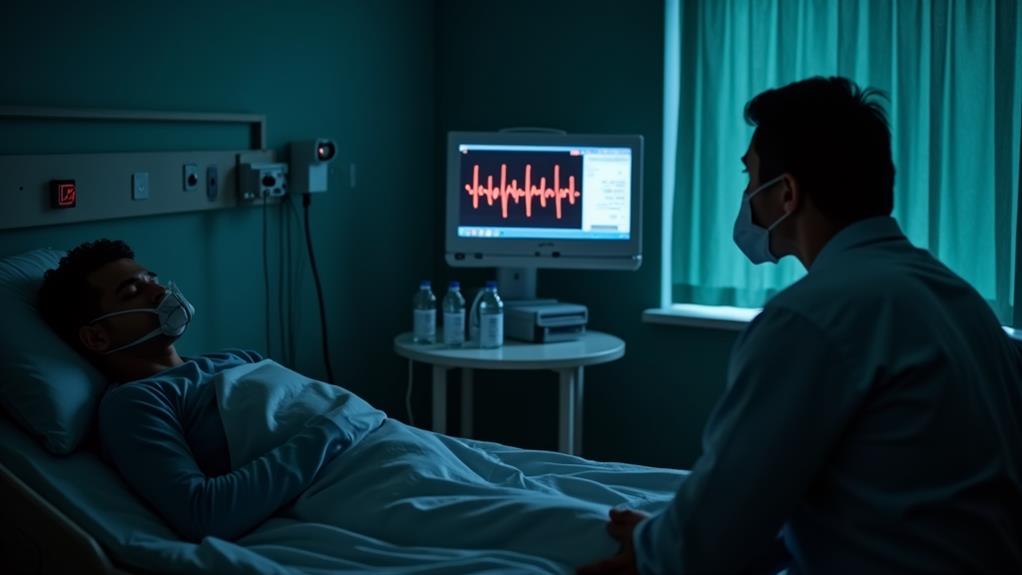
Long-Term Medical Complications
Prolonged use of poppers can lead to a range of serious long-term medical complications. Users may experience:
- Cardiovascular issues, including irregular heartbeat and hypertension
- Neurological damage affecting memory and cognitive function
- Chronic respiratory problems and lung damage
- Weakened immune system, increasing susceptibility to infections
- Retinal damage, potentially leading to vision loss
These long-term effects can greatly impact a user's quality of life and overall health.
Cardiovascular issues may manifest as persistent high blood pressure or heart arrhythmias. In addition, neurological damage can result in cognitive decline and impaired decision-making abilities.
The cumulative effect of repeated popper use on the respiratory system can lead to chronic breathing difficulties and increased risk of lung infections. Furthermore, the immune system may become compromised, making users more vulnerable to various illnesses.
Problems may likewise arise with eye discomfort such as pain, dryness, and sensitivity to light. Regular eye examinations are essential for popper users, as retinal damage can occur gradually and unnoticed until considerable vision loss occurs.
Legal Status and Availability
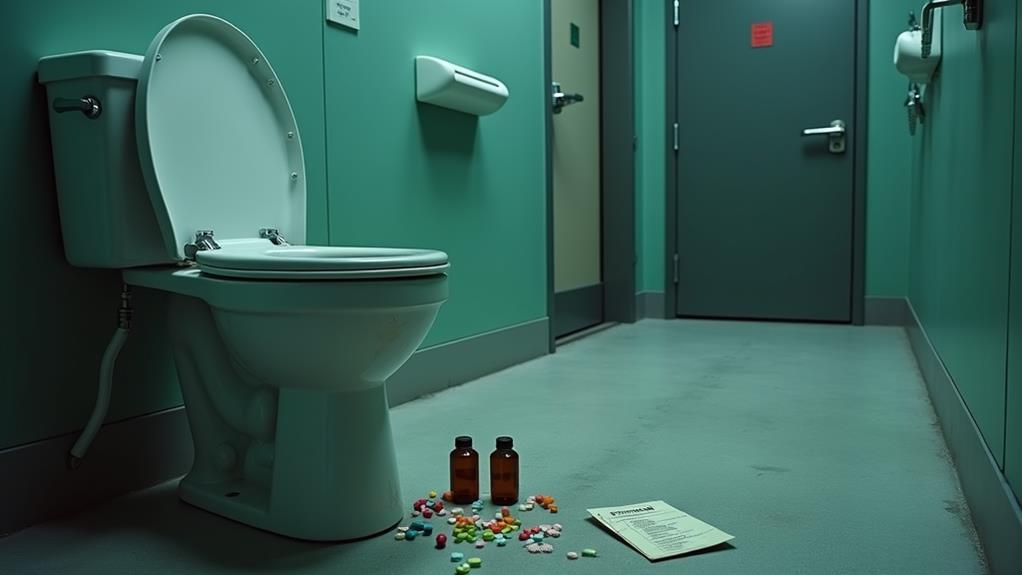
The legal status of poppers varies greatly across different countries and jurisdictions. In some regions, they are classified as controlled substances, whereas in others, they remain legally available for purchase.
This inconsistency in regulation has led to significant market trends, with online sales and international shipping becoming increasingly common. In spite of legal restrictions in certain areas, poppers continue to be widely accessible through various channels.
Some countries permit their sale as room odorizers or leather cleaners, exploiting loopholes in existing legislation. The legal implications of possession and distribution differ depending on local laws, creating a complex environment for users and suppliers alike.
As authorities grapple with the challenge of regulating these substances, the availability of poppers remains relatively stable, driven by persistent demand within certain communities seeking a sense of belonging and shared experiences.
Harm Reduction Strategies
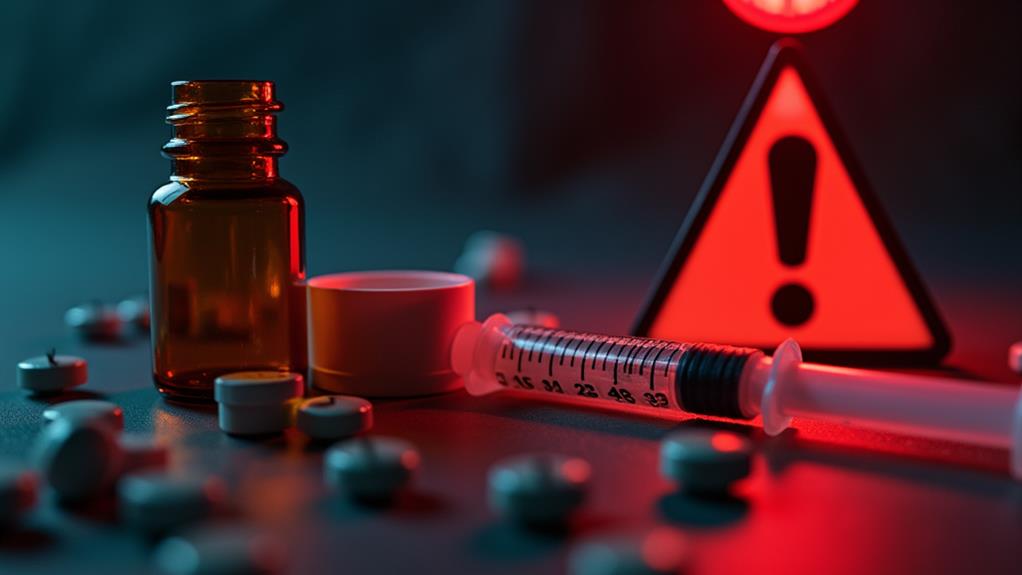
In spite of the inherent risks associated with popper use, harm reduction strategies can mitigate some potential negative consequences. Education campaigns and safe usage guidelines are fundamental components of these strategies.
Key harm reduction approaches include:
- Using poppers in a well-ventilated area
- Avoiding mixing poppers with other substances
- Limiting frequency and duration of use
- Using only from reputable sources
- Never ingesting poppers orally
Implementing these practices can help reduce the likelihood of adverse effects.
Nonetheless, it is imperative to emphasize that no use of poppers can be considered entirely safe. Community-based organizations and healthcare providers play a significant role in disseminating accurate information about the risks and potential harm reduction techniques.
Call Us To Assist You
In summary, poppers pose significant health risks notwithstanding their widespread recreational use. Short-term effects can include dizziness and headaches, whereas long-term complications may lead to vision loss or blood disorders. Even though legal status varies, poppers remain easily accessible. Implementing harm reduction strategies is vital for mitigating the colossal dangers associated with their use. Further research and public education are fundamental to fully understand and address the health implications of this volatile substance.
